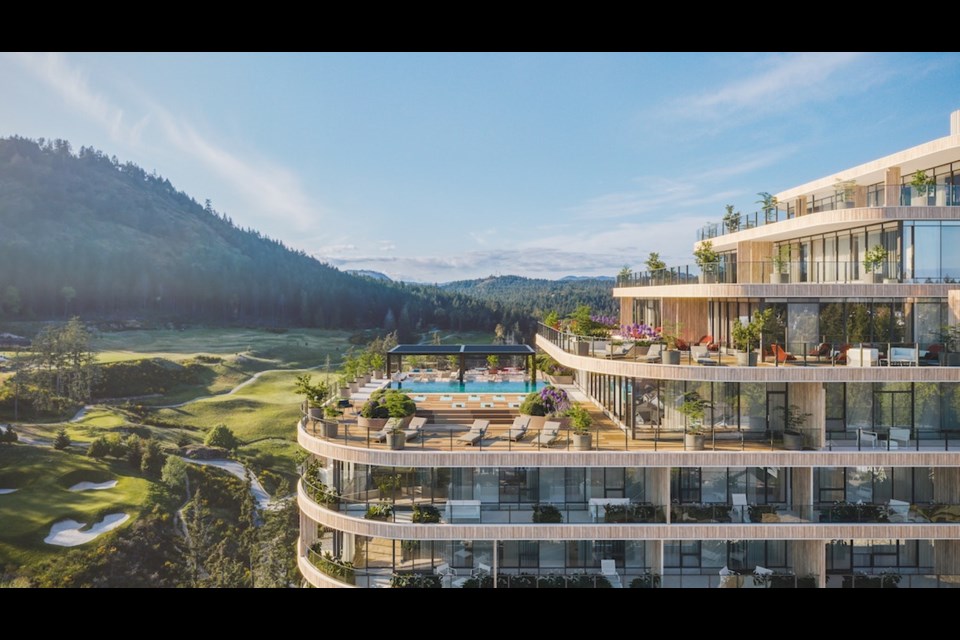One of the effects of the COVID-19 pandemic, intensified by lockdowns and quarantine periods over the last 18 months, is the desire to get outside and back to nature. It has also resulted in a property building and buying boom on Vancouver Island as people find they need more space, improved amenities and in some cases new settings.
According to search data from REW.ca, all 10 of the largest towns on Vancouver Island have seen an increase in homebuyer searches this year, led by Greater Victoria and Nanaimo, but including smaller such as Parksville and Qualicum Beach.
These pandemic aftershocks have rumbled through the Bear Mountain development on Skirt Mountain in Langford, which has seen a surge in interest over the past 18 months with people considering the resort as a place to live.
“It has certainly heightened awareness,” said Dan Matthews, chief executive of Ecoasis Developments, the company that bought the Bear Mountain resort and development lands in the fall of 2013. “We are getting a lot of attention lately with new real estate and new neighbourhoods.”
Matthews said over the past 18 months the development has added the 50-home Cypress Mews neighbourhood, 15 executive single-family homes in its Riviera neighbourhood, the 39-lot Pinehurst development is coming out of the ground, while new signage has just gone up promising a 30-home neighbourhood called Shadow Creek that will overlook the resort’s mountain golf course.
The company is drawing up plans for what could be a 180-unit development at the top of the mountain to be called Victoria Peak.
The first concrete residential tower built on the mountain in 15 years is seen in the construction of One Bear Mountain, an 18-storey, 209-unit luxury project by Toronto-based Terracap Group of Companies and Montreal’s 360 Pacifica Capital Corporation, which completes in 2024.
“We’ve been very active,” said Matthews.
Matthews said with new infrastructure improvements such as the McKenzie Interchange and Bear Mountain Parkway, accessed via the Trans-Canada Highway, the resort is better connected to the Victoria core and has become more of a bedroom community.
He said with people having the desire to be closer to nature, they are also more open to living in a 750-acre resort setting that is still just 15 minutes from downtown Victoria.
“This is a large property, but you only sell it once,” he said. “So, we took a pause on development in the early stages, waiting for some of the primary on-site and off-site infrastructure to be built, recognizing that once that was done values would be better.”
It seems to have paid off with many of the lots on the resort’s largest land parcels being quickly snapped up by builders.
Matthews estimates Bear Mountain, which has about 3,500 residents, is about one third of the way to being built out. The expectation is there will be about 10,000 people living in the area in the next 10 years.
Matthews said they have continued to invest in the two 18-hole golf courses, is working on expanding its tennis program, the trail network and has purchased the North Langford Recreation Centre built years ago beside the resort’s Westin hotel.
Plans are underway for a new village centre, which Matthews said will curate the kind of retail that caters to the growing community.
But the growth has come with some tension.
Bear Mountain has told its residents that it was planning a new trail network program that would include access fees for non-residents who want to hike or bike the trails that run on private land.
The restrictions rubbed some hikers and bikers the wrong way.
Mathews explained the program comes as a result of Bear Mountain residents asking for action as the trails have become busier during the pandemic and there have been dangerous situations on the golf courses involving unauthorized walkers and cyclists.



